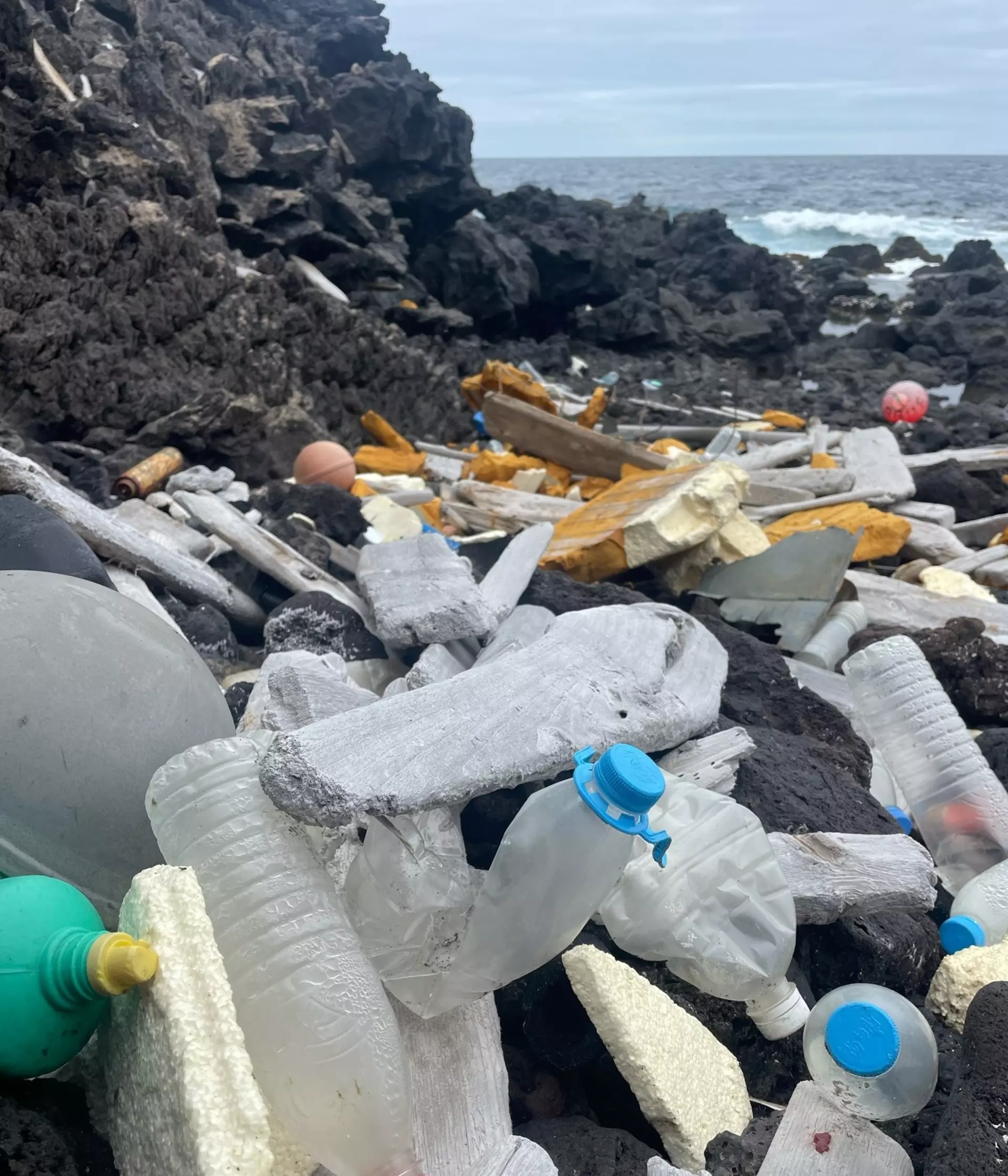Shauna Young
Senior Marine Projects Manager
Around 14 million tonnes of plastic pollution enter the ocean every year. ZSL Senior Marine Projects Manager Shauna Young explores how the world is coming together this November to tackle this major threat to marine life
This week, the member states of the United Nations will reconvene in Nairobi, Kenya, for the third meeting of the International Negotiating Committee (INC) to create an international legally binding instrument to end plastic pollution - a major threat to marine wildlife and the people that depend on it.
ZSL’s Country Manager for Kenya, Gurveena Ghataure, will be attending in person and teaming up with our partners at Fauna & Flora at UNEP’s Nairobi Headquarters between 13th - 19th November 2023. This meeting will be a central moment in the development of this new treaty, with countries due to discuss in detail what the treaty will cover, how it will operate and how it will be funded.
Quick recap: what is the UN Global Plastics Treaty?
In March 2022, a meeting of the UN Environment Assembly in Nairobi saw member states agree a resolution titled ‘End Plastic Pollution: Towards a Legally Binding Instrument’, kick-starting the process for an International Negotiating Committee (INC) to develop a legally binding UN Treaty on plastic pollution by the end of 2024.
To date, two in-person negotiations have taken place in the last year, in Uruguay and Paris, and the much anticipated ‘zero draft of the treaty was published in September 2023 - an initial draft of the treaty text that negotiators can dive into . Now at the third set of negotiations - known as INC3 - we will hear the global response to the zero draft and see options being negotiated by member states for inclusion within the final treaty text.
Two further negotiations will take place next year, before the UN Global Plastics Treaty is aimed to be finalised at the end of 2024.
Why does a Global Plastics Treaty matter?
Approximately 14 million tonnes of plastic enter the ocean every year, and over 900 different animal species - including turtles, corals, sharks and dolphins - have been reported to be negatively impacted by this pollution – through ingestion, entanglement, injury and ultimately death.
Plastic pollution sits at the intersection of the three planetary crises: Pollution, Biodiversity Loss, and Climate Change. In particular, ecosystems and communities based in the Global South are disproportionately impacted by plastic pollution, and coastal communities are 10 times more likely to accumulate pollution from overseas sources.
A global commitment to stem the flow of plastic pollution is crucial for people and planet, and there must be a priority focus on upstream solutions, rather than just relying on circular economy solutions. With production rates expected to triple by 2060, we cannot expect to recycle our way out of this situation.
What action is needed to tackle plastic pollution?
We are calling upon negotiators to develop and adopt an ambitious international legally binding instrument that both effectively protects biodiversity and is driven by - and representative of - the needs of local people .
For the Treaty to effectively tackle plastic pollution, there are four areas that must be considered:
Firstly, biodiversity must not be considered an afterthought. The Treaty must address the devastating impacts that plastic pollution has on wildlife through reducing plastic production, and using biodiversity positive language into the text.
Secondly, local communities matter. Communities in the global south are disproportionately impacted by plastic pollution, from discarded plastic bottles piling up on beaches to ingesting microplastics found within the fish they rely on for food and livelihoods. The Treaty must acknowledge this, and ensure that they are given a voice in developing the Treaty . Solutions need to be equitably resourced and co-designed to be locally appropriate to overcome unique challenges, together with the very communities who need them the most.
We’ve already worked with collaborators and representatives from some of the countries most impacted by plastic pollution when creating our joint position statement that we will be taking to INC3 with fellow conservation charity Fauna & Flora, and we hope that this sets an example for the collaborative approach that country representatives must take to ensure the Treaty tackles the impacts that plastic pollution has on people across the world.
Thirdly, solutions must be science based. An integrated scientific advisory body is urgently needed to both ensure that the treaty commitments are rooted in evidence, and that implementation after 2024 is informed by best practice approaches. Robust monitoring will be essential to track progress and improve effectiveness over time.
Lastly, accountability is essential. Clear goals, dates and compliance is absolutely necessary, with an emphasis on accelerated implementation of treaty commitments within the Global North wherever possible. There must be transparency and responsibility embedded across the whole plastics supply chain, and an appropriate financial mechanism setup to deliver the treaty and fulfil its ambitious commitments.
What is ZSL looking to achieve at INC3?
This week, ZSL’s Gurveena Ghataure will be engaging with member states at INC3 to discuss our key asks and why it is essential that the treaty prioritises these four areas. We have prepared recommendations on language changes within the text, ready to equip negotiators to ask for a more equitable and biodiversity-positive approach.
Gurveena will be providing updates throughout the week on how the negotiations are progressing, so keep an eye on our Twitter and Instagram over the coming week.
We believe that nature can recover, and the agreement to writing a global Treaty to tackle plastic pollution is an exciting and necessary step towards this goal. This week - and indeed the next 12 months - will prove vital for ensuring that we can build a future where plastic pollution no longer has devastating impacts on people and wildlife across the world.
Read ZSL’s joint position statement in full here.
